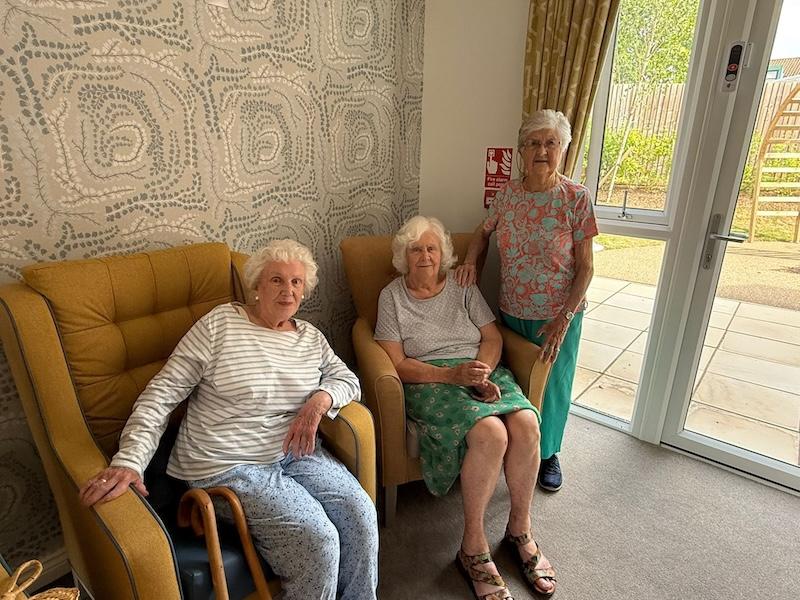What To Expect from Nursing Care in a Care Home

When it comes to moving into a care home, one of the most commonly asked questions is about nursing care and what to expect. Although many care homes offer different levels of care, a lot of care homes offer additional nursing care to individuals who need it. Depending on the level of care one requires and the type of care home, each individual's needs will vary, along with the regulations governing care facilities.
What is Nursing Care?
Nursing care is for those who require care and support 24/7, from medical requirements, assistance with daily living activities and personal care. It’s usually beneficial for those who have complex needs, a long-term illness or a physical disability.
Residential homes like Floryn House Care Home will be a supportive environment where residents receive assistance for both their medical needs and personal needs, delivered by a team of qualified registered general nurses who are available both during the day and night, making sure there is always continuous care for those with ongoing needs.
What are the Benefits of Nursing Care in a Care Home?
If you’re in need of nursing care, choosing this level of care in a care home or nursing home means you will benefit greatly. The benefits of nursing care in a care home are huge, one of them is due to the staff can provide a higher level of care compared to residential care.
Nursing care provides a range of benefits all personalised to each individual, no matter if they’re facing specific health challenges, chronic conditions or other ageing-related issues. With personalised care plans, care home staff members are able to provide assistance through activities of daily living, making sure individuals receive the right medications and monitoring their health status to detect any earlier signs of complications.
The levels of expertise a registered nurse has within nursing homes contribute to the prevention of health issues and their emotional support, helping individuals and their family members navigate the social and psychological aspects of healthcare.
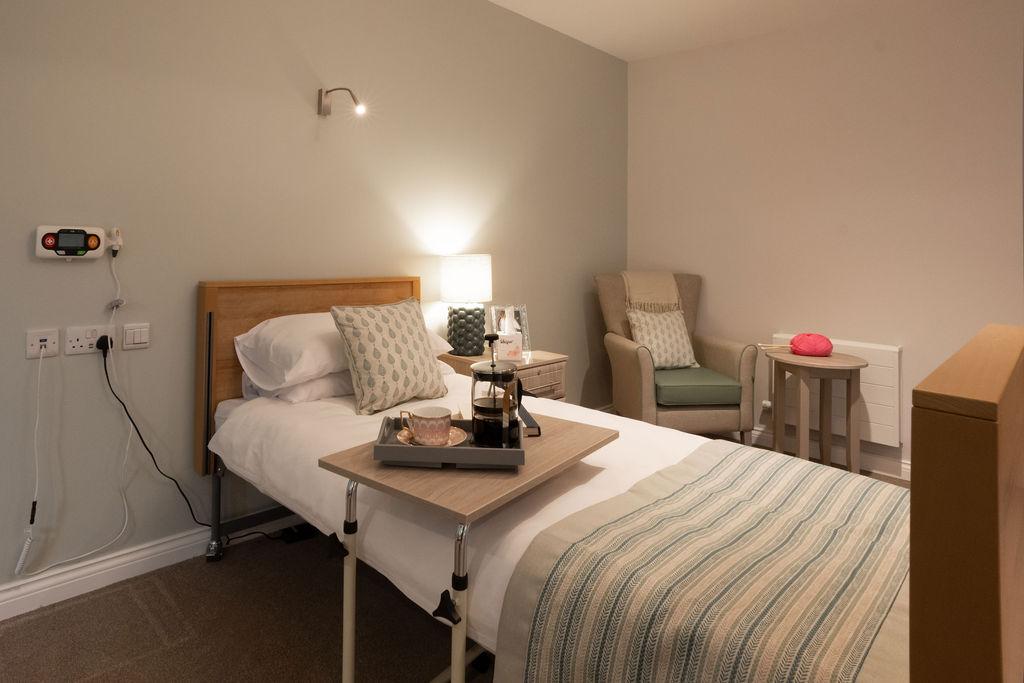
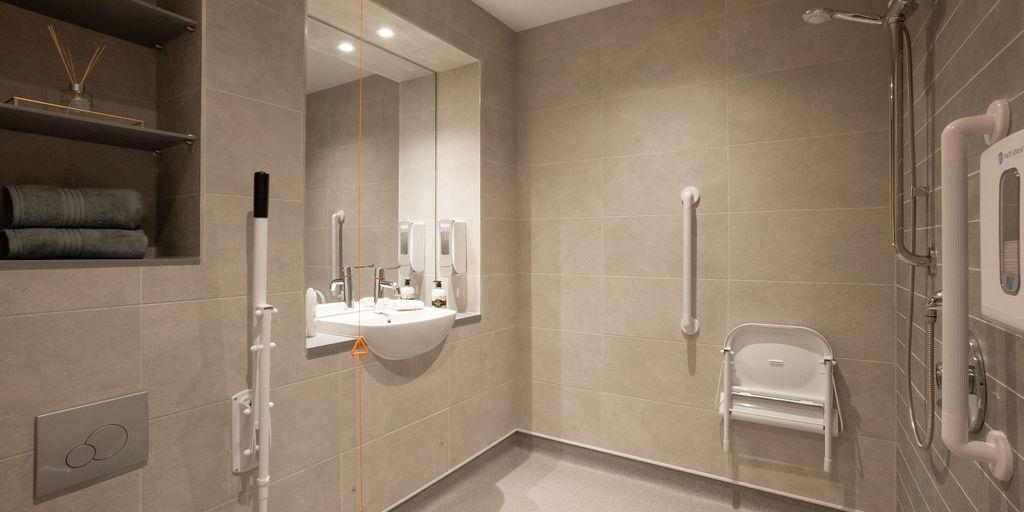
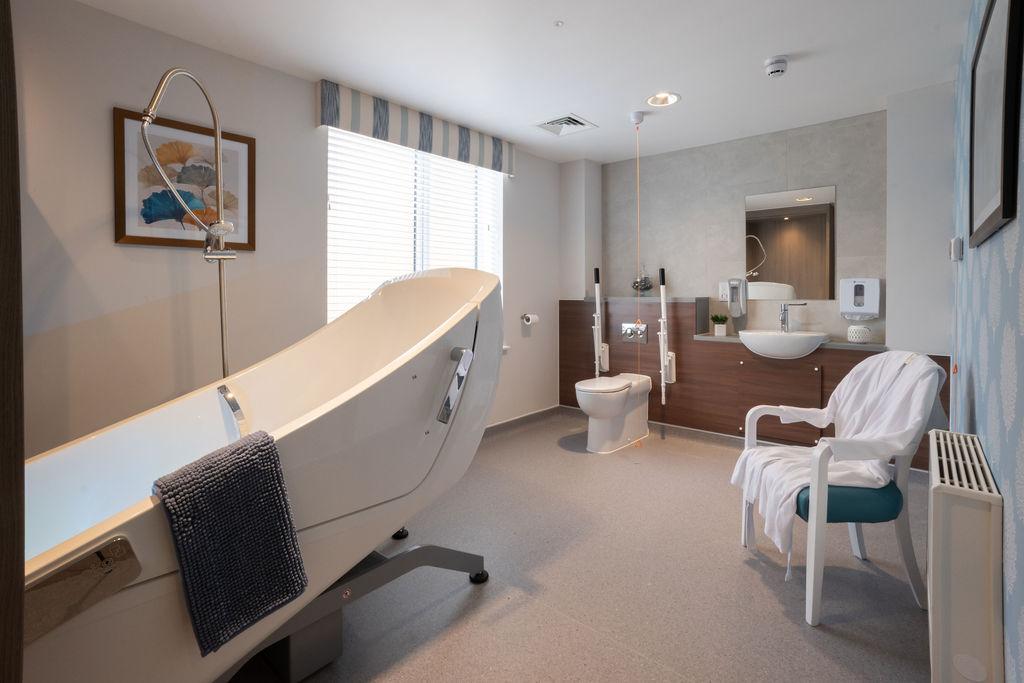
Nursing care is there to enhance the safety of others by creating secure environments under excellent levels of care, offering a holistic approach. For anyone with dementia, specialised support is given, likewise for those who are nearing the end of their life; nursing care focuses on comfort, emotional wellbeing and dignity.
In addition to physical needs, you may require nursing care to help improve the quality of your life by fostering a safe, supportive environment. Nursing care minimises the risks of any accidents and/or injuries, contributing to an enhanced well-being.
Family members will also be involved every step of the way, especially during the care planning process, education, receiving support and resources to take part in the care of their loved ones. Ultimately, nursing care plays a huge role in promoting health, preventing complications and providing compassionate support access through various healthcare scenarios; contributing to an improved quality of life. This type of care is more advanced and when you pay for nursing care, you gain access to specialised nursing equipment and qualified nurses which are always on hand no matter what. Care home nurses are able to offer residents with the correct medical care, where as other types of care may focus more on personal care.
Who is Most Suitable for Nursing Care?
If you’re finding it difficult to take care of yourself at home, you’ve had an injury or degenerative health condition, which means returning back to your original place of residence is no longer an option and nursing care may be the type of care service you need. Certain nursing care homes will specialise in specific medical areas, from learning difficulties, physical disabilities and mental health issues (specialist nursing care). Nursing care is ideal for those with disabilities, as it allows them to have extra assistance in daily activities and medical needs, all within a comfortable residential environment.
Specialised nursing care is essential for those who experience cognitive impairments or dementia, making sure a safe environment is there alongside tailored support. Nursing care extends to those with complex medical needs, offering specialised treatments, monitoring and interventions; it plays a huge part in end-of-life care (palliative care), providing pain management, comfort and emotional support for the individual receiving the care as well as anyone else involved, such as friends, family members and other relatives. Nursing care is also adaptable for temporary needs, such as supporting family caregivers in need of respite or assisting individuals recovering from an illness or injury.


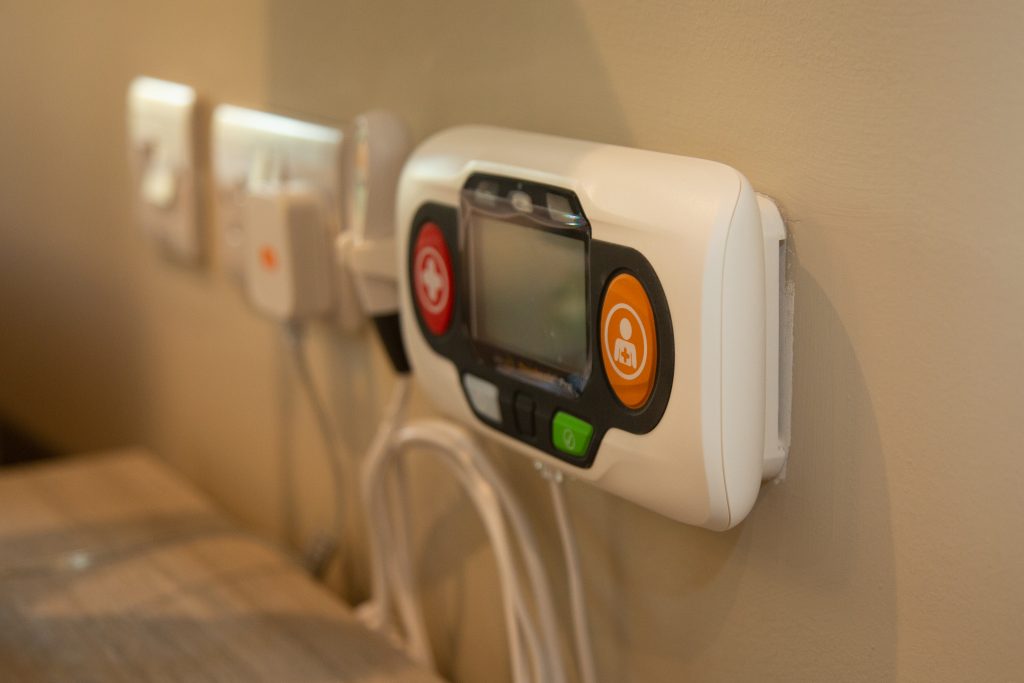
Past medical assistance, nursing care caters to the holistic wellbeing of individuals, including those looking for rehabilitation services for various conditions. The versatility of nursing care allows for customisation based on specific needs, making sure that individuals receive the right levels of support needed to enhance their lifestyle. Whether that’s addressing the challenges of aging, providing end of life care or managing chronic conditions, nursing care plays a vital role in promoting health, preventing complications and fostering a supportive environment for diverse individuals in need. Nursing care is beneficial for those who need constant support in a comfortable and safe environment.
If you’re unsure as to whether yourself or a loved one is suitable for nursing care, most care homes will conduct an initial ‘Care Needs Assessment’ where the staff members can ensure that each individual is receiving personalised care which has been designed for them. After this assessment, the staff members will provide personal care plans which will be set in place; don’t worry, it’s not permanent and can be changed and updated whenever needed.
Residents & Nurses - Creating a Connection
In all care homes there will be a huge emphasis on the bond between the residents and the members of the nursing team and with that comes a high level of trust between both parties, ensuring that the highest levels of care can be reached. The connection between a resident and carer in any setting is so important, influencing the overall quality of care and the resident’s wellbeing. This relationship fosters comfort, trust and open communication, enabling carers to provide more personalised and effective support.
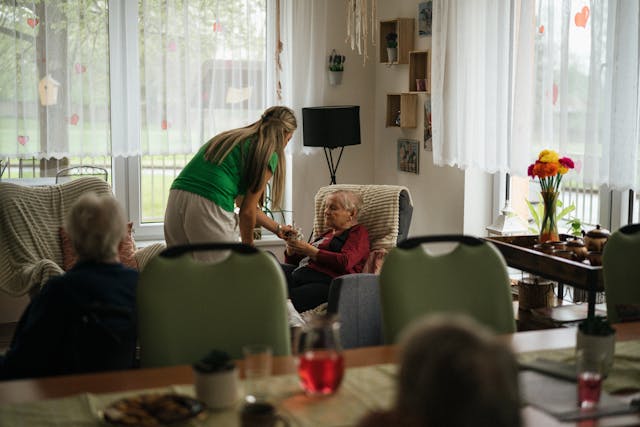

Beyond physical care, a strong bond contributes to emotional support, reducing feelings of isolation and enhancing the resident’s emotional and mental health. Careers who understand a resident’s preferences and respect their autonomy create an atmosphere which upholds dignity, ensuring a positive care experience. Ultimately, the importance of this bond lies in the ability to go above and beyond the caregiving routines, offering residents companionship, a sense of connection and empathy that improves their overall quality of life.
Some residential care homes, like Floryn House, adopt a ‘Key Nursing’ system, which involves each resident being assigned their own qualified nurse who will be in charge of their personal care plans, making sure they get the most out of their time during their stay.
Other Types of Care
No two residents are the same, each one will have different interests, features and preferences that make every single one of them stand out from the others. If no two residents are the same, then their care shouldn’t be either. With plenty of care variations that have been created and developed, it means each resident will always get the right levels of care in which they deserve.
Residential Care
Residential care is open to as much or as little help as each resident requires; it’s provided by a team who are also available 24/7 and they’re dedicated to assisting those who are having difficulty managing a household, catering for themsleves or seeking the companionship of others due to their ages and interests. Residential care is usually aimed at those who can still live their regular life, day to day tasks, yet may just need some help from time to time. Some individuals may choose to live in a residential care home on a longer term basis, depending on the care home costs and levels of care is provided.

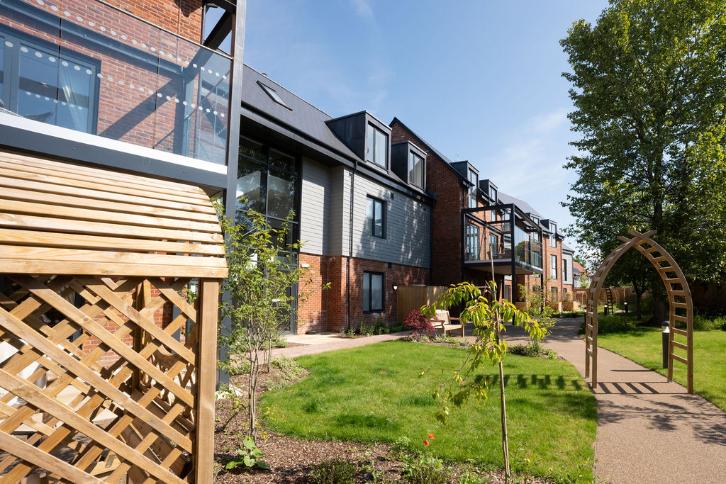
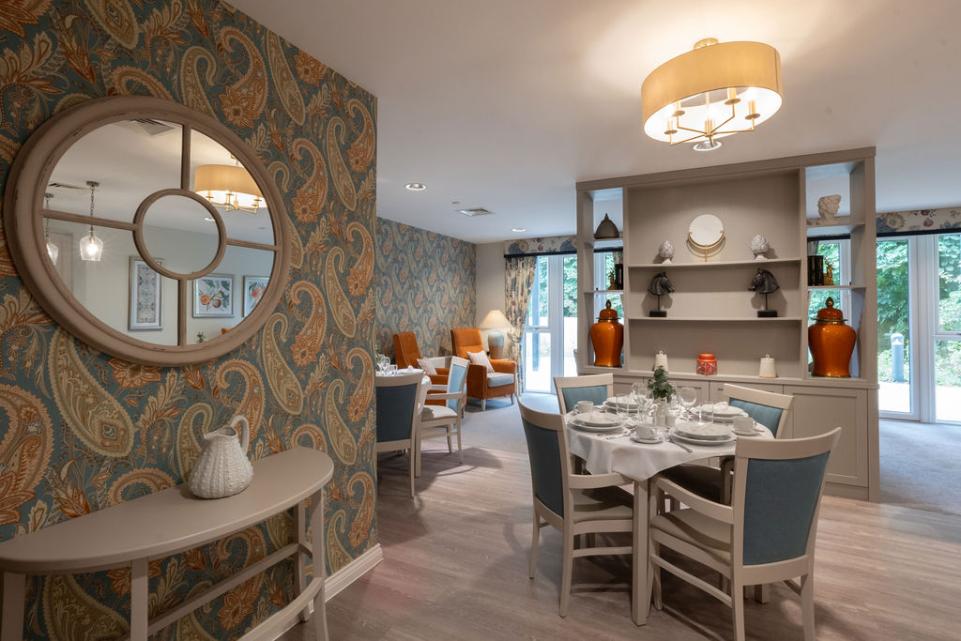
Dementia Care
Those who suffer from dementia will require specialised care, which is why many care homes will hire trained and fully qualified professionals to handle all stages of dementia. As we gradually understand more about dementia and other medical conditions, care homes should expand their understanding and procedures to guarantee that each resident will receive the best care possible, allowing care homes to provide care that is personalised to the wishes, capabilities and interest of their residents.



Respite Care
Respite care is a great choice for anyone looking for a short-term break from caregiving responsibilities and wanting a greater understanding of the services, team and facilities before going into a care home. In this case, care homes are able to offer you a comfortable, positive and friendly environment where you can recharge for as long as you need. Respite care can also be provided to those who are recovering from an illness, injury or rehabilitation. It can be scheduled or offered on an emergency basis and can span anywhere from a few weeks to several months.
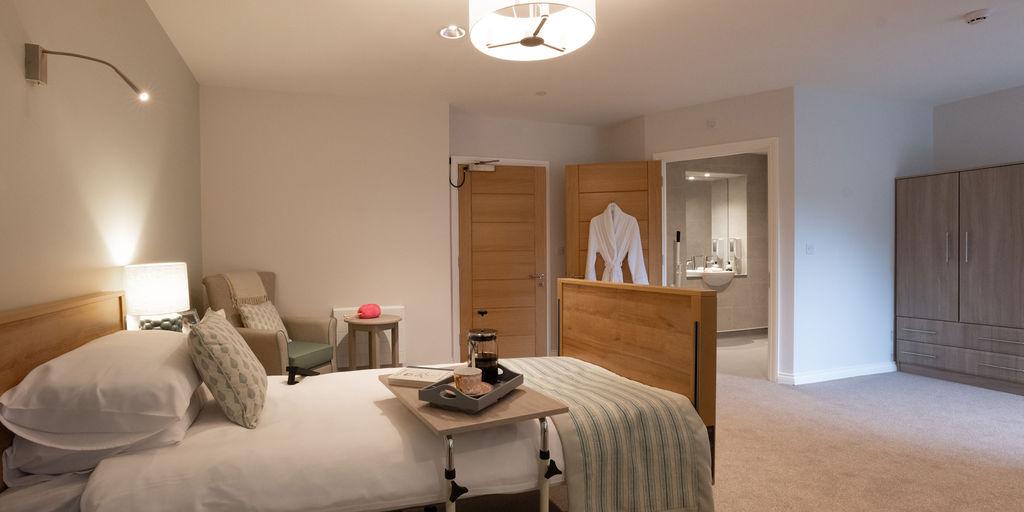
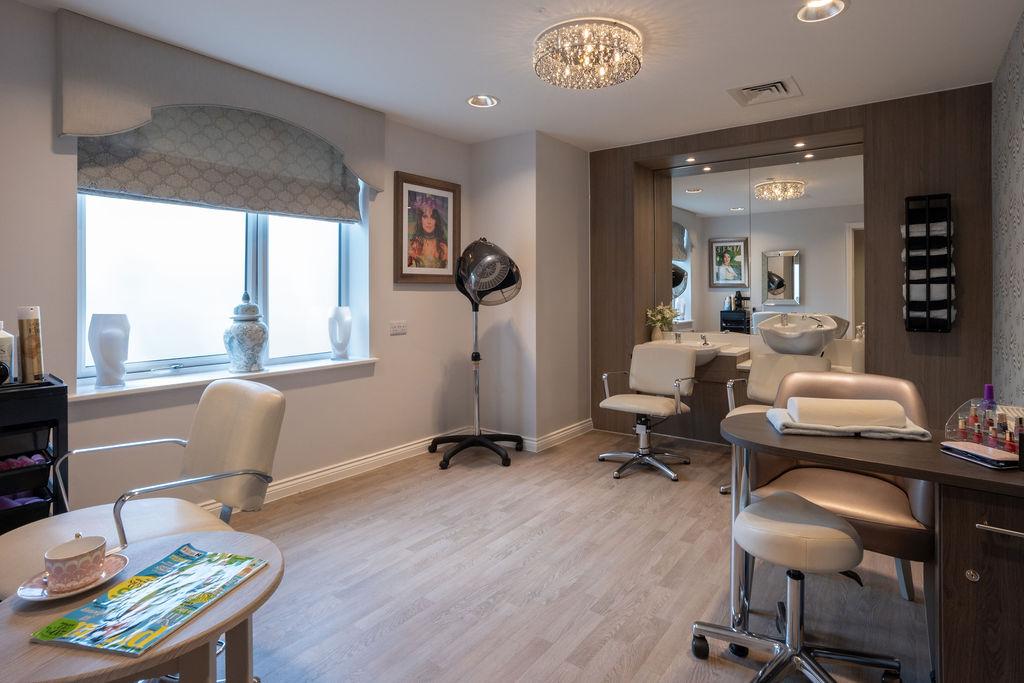

Nursing Care at Floryn House Care Home
Within our residential home in Yarnton, we’re proud to provide nursing care 24 hours a day, 7 days a week, all delivered by skilled professionals; we have a dedicated, compassionate team of registered nurses who specialise in personalised care. With their training and expertise, we can assess the needs of our residents, understanding what types of care are most suitable for whom and recognise any changes in health and their behaviour along the way to determine when medical intervention is needed.
At Floryn House Care Home, we provide personalised care plans which are tailored to each resident, created by our nurses. Our main goal is to empower our residents in maintaining their independence for as long as possible, whilst prioritising their dignity and letting them know we’re on hand to support them whenever they need it, no matter the time of day and/or night.
We strive for the best and our dedicated staff consistently go above and beyond, ensuring everyone receives exceptional care, from assisting with the morning and evening routines, moving around the home, administering medication and providing help during meal times; we’re able to cater for all of our resident’s needs at all times.
If you’re interested in learning more about nursing care or any of our other care services, please contact our friendly team today who will be more than happy to assist you.




